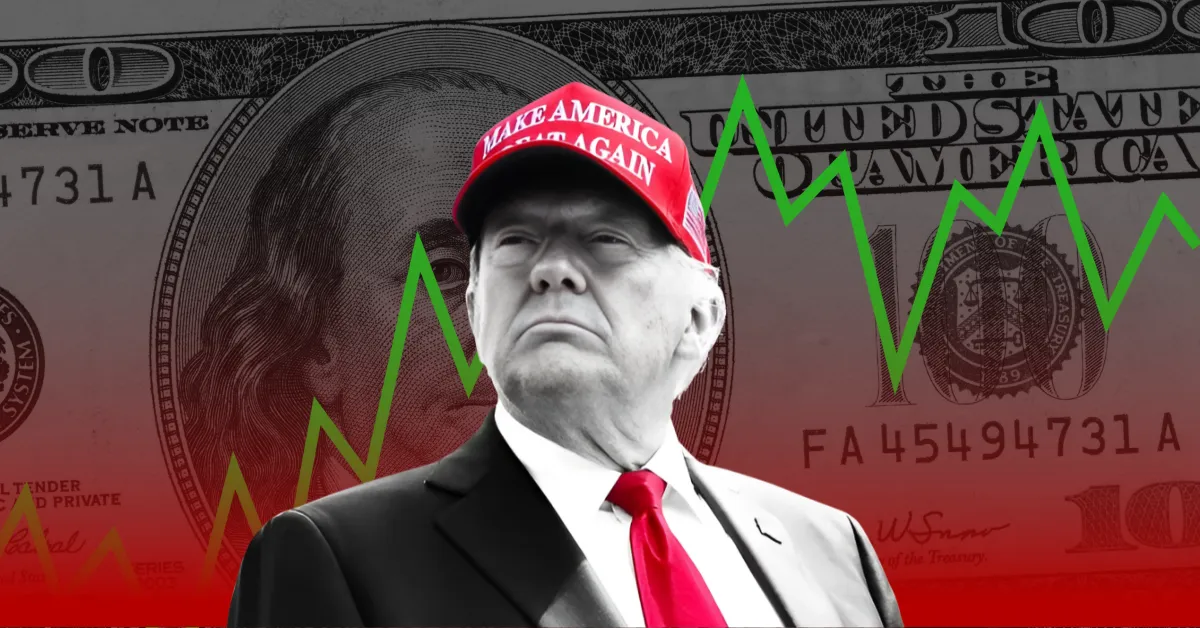
The cryptocurrency market has always been a wild ride, but the recent saga of the $TRUMP meme coin has taken volatility to a whole new level. What started as another internet-fueled crypto craze quickly turned into a stark lesson about the brutal realities of digital asset speculation. While a handful of investors walked away with life-changing profits, hundreds of thousands found themselves holding the bag—a classic case of “the rich get richer” playing out in blockchain transactions.
The Whale Feeding Frenzy
Blockchain analytics tell a sobering story: just 58 crypto wallets managed to vacuum up $1.1 billion in profits from the $TRUMP coin frenzy. These weren’t your average Joe investors—they were crypto whales who smelled blood in the water the moment this meme coin launched. Armed with insider-level knowledge of market mechanics and enough capital to move prices, they executed textbook “pump and dump” maneuvers. Their playbook? Buy enormous positions during early hype cycles, then cash out when retail investors FOMO in—leaving the little guys holding depreciating digital tokens. This isn’t just luck; it’s a calculated exploitation of crypto’s unregulated nature.
The Retail Investor Massacre
On the flip side, Chainalysis data reveals 764,000 wallets—many containing less than $100 in crypto—now sit in the red. These are the teachers, Uber drivers, and college kids who thought they’d found a shortcut to financial freedom. Instead, they became unwilling participants in what amounts to a $2 billion wealth transfer scheme. The psychological damage runs deep: many liquidated life savings or took on credit card debt to buy $TRUMP at its peak, only to watch values crater when the whales decided to cash out. What makes this especially cruel? Most lacked even basic tools like price alerts or liquidation triggers that institutional players use to limit losses.
Meme Coins: Financial Innovation or Digital Pyramid Scheme?
The $TRUMP phenomenon forces us to confront uncomfortable questions about crypto’s ethical vacuum. Unlike traditional IPOs where prospectuses detail risks, meme coins thrive on Telegram hype and influencer shilling. There’s zero underlying value—no revenue streams, no governance structures, just viral tweets and the hope of finding a greater fool. Regulatory bodies are finally taking notice: the SEC recently subpoenaed several meme coin developers for potential securities violations. Yet enforcement remains patchy, allowing new scam coins to emerge weekly. Even more troubling? Many exchanges quietly facilitate these schemes by listing unvetted tokens while collecting fat trading fees from wrecked retail traders.
As the crypto market matures, the $TRUMP debacle should serve as a cautionary tale. Yes, blockchain technology holds transformative potential—but until we address the predatory asymmetry between whales and minnows, these digital gold rushes will keep producing more losers than winners. Smart money now focuses on projects with actual utility (think Ethereum’s smart contracts), while educated retail investors learn to spot pump-and-dump patterns. One thing’s certain: in the Wild West of crypto, the house always wins—and that house is built with the shattered portfolios of small-time dreamers.




发表回复